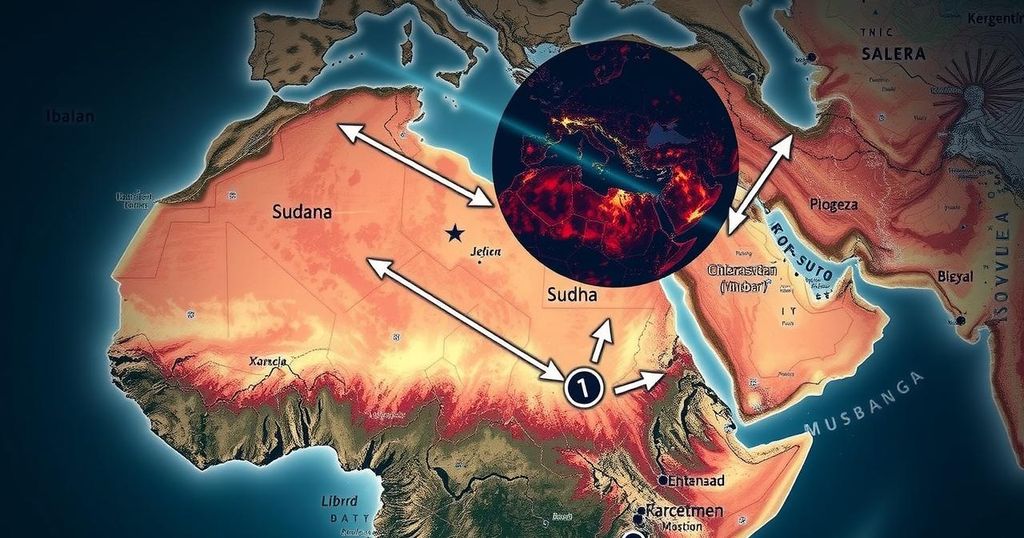Russia’s Strategic Shift: From Syria’s Naval Base to Potential Bases in Sudan and Libya
The potential collapse of Bashar al-Assad’s regime in Syria jeopardizes Russia’s control of its naval base and airfield, essential for its operations in Africa and the Mediterranean. In response, Russia is seeking to establish a foothold in chaotic regions like Sudan and Libya to sustain its geopolitical ambitions, despite the complexities involved amidst ongoing conflicts.
The recent developments in Syria, particularly the increasing power of rebellious forces opposed to President Bashar al-Assad, pose significant challenges to Russia’s geopolitical aspirations. Assad’s potential downfall threatens not only Russia’s interests in the Mediterranean but also its broader ambitions in Africa. With the strategic loss of the naval base in Tartus, which has facilitated Russian military operations in the Mediterranean and aligned its influence in Africa, Russia is now compelled to seek alternatives.
In light of these circumstances, Russia appears to be exploring options in Sudan and Libya. Sudan has emerged as a focal point due to past agreements for establishing a Russian naval base near Port Sudan, alongside lucrative mining contracts held by the Wagner Group. Although the Sudanese conflict complicates matters, Russia’s ability to negotiate both military and resource agreements positions it advantageously.
On the other hand, Libya offers another opportunity for Russia to solidify its military presence. The Wagner Group has long supported General Khalifa Haftar’s forces in the Libyan civil conflict, emphasizing Libya’s potential as a strategic platform for operations in North Africa and the Mediterranean. Russia’s ongoing military investments indicate its intention to solidify control over vital resources like oil while also establishing logistical bases across key locations.
Thus, as the Kremlin reassesses its strategy post-Syria, it is poised to exert influence in these war-torn regions, albeit with considerable complexities surrounding domestic support and the international geopolitical landscape. Ultimately, Russia’s strategic maneuvers in Sudan and Libya will play a critical role in maintaining its presence in Africa and countering Western influences in these regions.
The backdrop of this analysis lies in the recent shifts in power dynamics in Syria following years of civil conflict. The potential loss of key Russian military installations in Syria has critical implications for its power projection in both the Mediterranean and Africa. As Russia seeks to reclaim and enhance its influence reminiscent of the Cold War era, Syria’s strategic value is undermined by the resilience of local insurgent forces. Concurrently, Russia’s historical involvement in African affairs has been facilitated through entities like the Wagner Group, which has established itself as a crucial player in securing resources in several African nations. The convergence of political turmoil in Sudan and Libya presents both opportunities and challenges for Russian ambitions in these strategically important regions.
In conclusion, the shifting landscape in Syria poses substantial risks for Russia’s military and geopolitical strategies. The potential loss of the Tartus naval base necessitates a shift in focus toward alternate bases in Sudan and Libya. These regions, however, are fraught with instability and conflict, complicating Russia’s ambitions. Ultimately, how effectively Russia navigates the complexities of both nations will dictate its future influence in Africa and the Mediterranean.
Original Source: www.intellinews.com




Post Comment